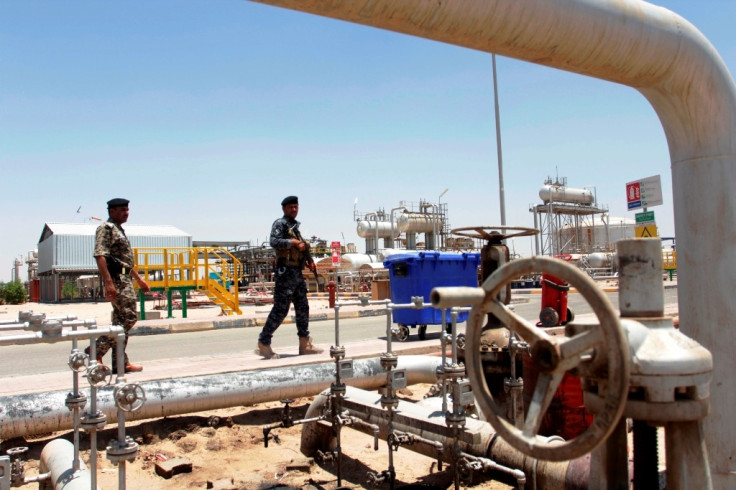Crude Prices Mixed as Iraq Mulls Higher Exports and US Loosens Oil Export Ban

Crude oil prices witnessed mixed trade on 25 June amid news that Iraq could increase crude exports in July and rumours that a US ruling on American oil exports will have a limited impact on global markets.
Brent August contract shed 74 cents to $113.72 a barrel at 10:42 BST in London.
The European benchmark crude traded at a premium of just $7.18 to the WTI.
WTI August contract was trading at $106.44 a barrel after rising $1.47 to $107.50 a barrel earlier in the day.
Prices have risen 8.2% so far this year.
In Iraq, Oil Minister Abdul Kareem al-Luaibi told Bloomberg his country is planning a big increase in oil exports in July. Opec's second-largest crude producer exports about 2.5 million barrels a day at present.
Meanwhile, federal officials in the US have marginally relaxed a 40-year ban on American oil exports – energy companies can now export a variety of condensate, an ultra-light oil, provided it has been minimally refined.
Commerzbank Corporates & Markets said in a note to clients: "Brent is continuing to trade close to the $114 per barrel mark. Any further price rise would require news that the supply of oil from Iraq is under threat from the fighting taking place there. Although the probability of this happening is very low, the price response would be considerable if it did. This tail risk is likely to preclude any more pronounced price fall for the time being and should keep the Brent price at above $110 per barrel."
"Meanwhile, Saudi Arabia has announced that it could step up its oil supply if necessary. By its own account, the largest [Opec] producer is able to produce 12.5 million barrels per day, meaning that it still has spare capacities of around 3 million barrels per day. WTI has also increased in price in Brent's slipstream: at almost $108 per barrel, WTI was for a time at its highest level in nine months. Because Brent reacts much more sensitively to the supply risks in Iraq, the price differential between the two oil types widened at its peak to more than $8 per barrel - the last time this was the case was in early May.
"True, the pricing-out of the excessive fears of supply outages in Iraq did recently cause the price gap to shrink again somewhat - the API inventory data published after close of trading yesterday evening argue against any further narrowing of the spread, however, as total US crude oil stocks unexpectedly increased by [four] million barrels last week. Oil stocks at Cushing grew by 424,000 barrels, and US gasoline stocks also made significant gains. This also means upside risks for the official inventory data to be published this afternoon by the US Department of Energy," Commerzbank analysts wrote.
Iraq War
Al-Qaeda's official offshoot in Syria has pledged allegiance to Isis at a flashpoint town on the Iraqi border, according to a monitoring group.
The British-based Syrian Observatory for Human Rights claims the merger between the two rival groups will allow Isis - an acronym for the Islamic State of Iraq and the Levant - to control both sides of the border: Albu Kamal in Syria and Al-Qaim in Iraq, which is battling Sunni insurgency.
© Copyright IBTimes 2025. All rights reserved.






















